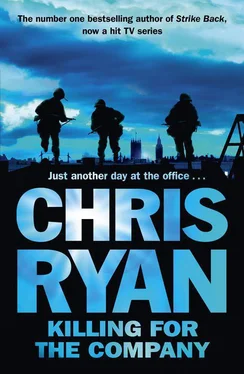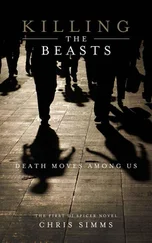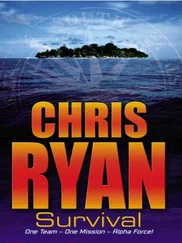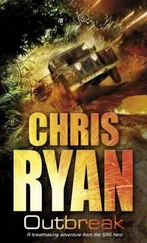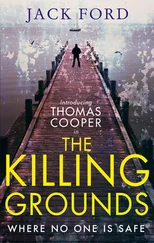But it was not rats, or rat shit, that scared him.
The tunnels were, by rights, illegal, even though everyone knew they existed. From time to time the authorities cracked down. Not because they had any real objection to the existence of the tunnels, or their purpose; but because to arrest someone was a good way of extorting money from them. Fail to pay — and this young man did not have the means to do that — and you could be sure of ending up in a Gazan prison.
But it was not the threat of discovery that scared him either.
It was the threat of a sudden and stifling death.
The tunnel was about two metres high and one metre wide, though because it had not been dug by experts, the height was not uniform and there were places — like the spot where he was now — where the ceiling was too low to stand. It was held up by a series of wooden joists, each one spaced a couple of metres apart and supported by timber poles that sagged in the middle. He had good reason to be fearful down here. These tunnels had a limited life. It was not a question of if they collapsed, but when. It always seemed to happen when there was somebody down there. Perhaps it was the vibrations they caused as they moved gingerly along the tunnel. Perhaps it happened when they knocked against one of the timber poles. There are many ways to die, and he had contemplated most of them, but being crushed by the weight of so much earth was not the method the young man would choose for his own martyrdom. Now he whispered a fervent and continuous prayer to himself as, torch in hand, he crawled over the loose dirt and rodent shit and moved further along the tunnel.
He had started out in a small house a hundred metres from the Egypt-Gaza Strip Barrier — a buffer zone between the two states with a steel and concrete wall that was even more impenetrable than the high wire fence that segregated Israel and Gaza. The basement of this house was the starting point of one of the many tunnels that crossed from the Strip into Egypt and Israel. Gaza’s neighbours had done everything they could to destroy these tunnels. The Israelis had bombed any house suspected of secreting an entrance — regardless of how many innocent men, women or children were inside. Egypt had gone so far as to start work on an underground wall to block these subterranean access points. But they couldn’t block tunnels they were unable to see, and many remained.
How far had he come? It was so difficult to say in the darkness. A hundred metres, perhaps? That would put him almost exactly underneath the border. It would mean the Gaza Strip lay behind him and Egypt ahead. With any luck, he would soon see…
He stopped. Lights up ahead. He couldn’t make out the distance yet. Thirty metres, maybe more? The young man’s heart beat a little faster. He was pleased to make contact with somebody else; but he was apprehensive about the package he was to take delivery of. It was really not the sort of thing you wanted to have with you down here. Ordinarily, these tunnels were used for smuggling essential goods under the border from Egypt to Gaza. The Israeli blockade of this tiny state’s eastern and northern borders meant that food and medicine were increasingly scarce. The Israelis allowed a certain quantity of these commodities over the border, but nothing like enough for the whole population. So it was that in Gaza, thanks to these tunnels, the black market in antibiotics was almost as buoyant as the black market in Western cigarettes.
Of course, it was not just food and medicine that found their way through these secret passages. Gaza may not have been officially at war, but there were enough angry men in that tiny strip for it to feel like a state perpetually on the edge of military conflict. Militants need weapons. They need ammunition. These tunnels had transported countless Kalashnikovs and rockets, and untold boxes of rounds and explosives. And they had transported armies, too. Not large armies, like those that the bigger nations could muster. Gaza was small, and had to make do with its meagre resources. Her forces consisted of handfuls of martyrs, armed with vests packed with explosives, tiny electrical detonators and a willingness — an eagerness — to die for their cause.
The lights ahead grew closer and the young man could hear voices. He cursed under his breath. Why couldn’t they keep the noise down? Didn’t they know what could happen if they spoke too loudly? He felt the sweat dripping down his face, and continued to pray and crawl.
They met about twenty metres further on. There were two of them, Egyptians in their mid-twenties — a good five years older than him. They didn’t look nearly so scared. It was possible to stand up in this part of the tunnel and the three men stood close together, eyeing each other mistrustfully. He could smell the coffee on their breath. One of them was taller than the other — it was difficult to make out his features without shining a torch directly in his face — and he was carrying something. The young man directed his torch beam at it.
It was a box, about fifty centimetres square and thirty deep. It was made of something resembling balsa wood — the kind of thing that might be used to carry fresh fruit, but sealed at the top. On the side of the box facing the young man was a curved mark. He was not a great reader, especially of non-Arabic lettering, so to him the ornate red ‘G’ was a meaningless symbol.
The Egyptian man thrust the box towards him.
‘Be careful with that,’ said the young man. ‘Don’t you know what it is?’
He took it from the Egyptian, gripping it with both hands.
The shorter of the two men made a hissing sound between his teeth. ‘Fucking Gazans,’ he said. ‘Maybe it’s soap for you to wash your mother’s filthy arse.’
The young man stood perfectly still. ‘My mother,’ he said, his quiet voice disguising a world of emotion, ‘is dead.’
The smaller Egyptian shone his torch directly in the face of the young man, who wanted to look away from the bright light but refused to. ‘Good,’ said the Egyptian. ‘One less for me to waste my spit on.’ And he spat a mouthful of saliva on to the young man’s left cheek.
The two Egyptians laughed; but they fell silent when they heard an ominous creaking sound. For a few seconds, all three men froze.
More creaking. Impossible to say where it came from. It sounded like the whole tunnel was groaning.
The young man held the box a bit tighter to his body. ‘If you knew what was in here,’ he said, his voice trembling slightly, ‘you wouldn’t stick around.’
He raised his torch to light up their faces.
All of a sudden they looked a little less sure of themselves. As they glanced at each other, they shot the young man a hateful look. Then they turned and hurried back down the tunnel. They were careful to be quiet now. He had the impression that they wanted to get away quickly.
Wise decision, he thought to himself.
The journey back along the tunnel was even more scary than before. In those places where he could stand, the young man held the wooden box tightly. When he had to crawl, he placed it on the floor and pushed it ahead of him. He had been told that the contents were not especially volatile, that they needed a special kind of detonator. He didn’t find that especially reassuring. It would only take a small mishap for him to be not only crushed, but burned.
Fifty metres to go. The tunnel creaked again. Again he froze, not knowing whether to keep moving so as to get out of there quickly, or to stay still and avoid disturbing the structures down here. But he knew he couldn’t remain immobile forever, so he started crawling once more, pushing the box along and muttering his constant prayers.
Minutes passed like hours. With, he estimated, twenty-five metres to go, he realised he was heading uphill. The end of the tunnel was close and he wanted to speed up, to get out as quickly as possible. But he tried to stay calm. To stay slow. Whatever was in the box would not become any less dangerous just because he was nearly on home soil.
Читать дальше
